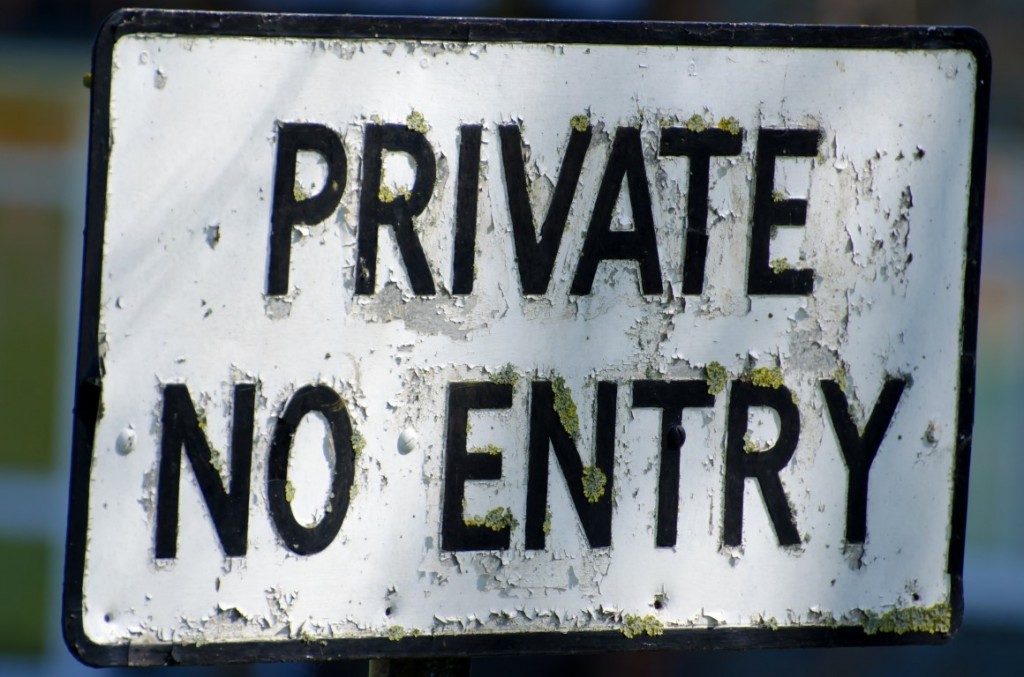What’s at stake in the Law Library’s new policy on access?

Change is afoot at Osgoode Hall. On November 17, the Law Library instituted a “restricted-access policy,” prohibiting non-Osgoode students and community members from using the Library’s study spaces for the remainder of 2014. In an email to the student body sent on November 13, Chief Law Librarian Louis Mirando explained the move as necessary to “facilitate [student] work on end-of-term assignments and studies for the upcoming exams.” Importantly, the policy is being enforced through a controversial practice called ‘carding,’ which requires all patrons to present personal identification to Library staff upon entry, and to submit to further “querying” if required. While some students have come out in support of the new policy, many others are raising questions about its content, implementation, and effects.
To foster a critical discussion of both the means and the ends of restricted access, the Obiter Dicta is reprinting the following edited letter, sent by an Osgoode Hall law student and Law Union member to the Chief Law Librarian on November 22. Readers interested in voicing their own concerns and/or organizing a campaign to repeal the policy may contact the Osgoode Hall Law Union at <ohlu.sc@gmail.com>.
—
Dear Louis Mirando,
My name is Parmbir Singh Gill, I’m a first-year JD student at Osgoode Hall, and I have some questions about the carding policy instituted by the library from 17 November 2014. As a young racialized person born and raised in Toronto, I have had several negative experiences with carding practices across the city, and am concerned about the introduction of something similar at my school.
My questions are as follows:
1. Does this policy have a history at Osgoode, or is this its first appearance?
2. Have complaints about a shortage of study space been made by students or observed by staff, during the exam period and/or otherwise?
3. Under what authority was the decision to implement the policy taken, and how were students consulted?
4. Were alternatives considered to address the twin needs of study space and accessibility?
5. Do you or others involved in the decision-making process hold similar or different concerns about the policy?
My own concerns are two-fold. First, and speaking from experience, I have found that the vesting of power in one group to demand identification from another tends to create an atmosphere of suspicion and antagonism where none previously existed. This is all the more so when the place where such exchanges suddenly start to occur is public, as I understand our library to be. The danger is that a policy of this sort, irrespective of the quality of its enforcement, will over time erode relations of trust between and among students and staff, creating in their stead hostilities, hierarchies and a generalized perception of inaccessibility. Restricted access thus threatens to deform the nature of public space and maim our collective experience of it. This is not the sort of community I was hoping to enter or build as a student at Osgoode.
Second, I worry deeply that the practice of carding, which is being used to enforce the new policy, will ultimately play out along axes of race and class. While I appreciate your assertion that access restrictions at Osgoode will unfold “without any perception of bias”, with respect, I don’t think such a thing can be either promised or achieved. Discretion is unavoidable in any enforcement scheme, and, as we’ve learned in State and Citizen, it is also often exercised differentially in an unequal society. Indeed, those of us on the wrong side of race and class can attest to this everyday reality – the myriad subtle ways that prejudicial suspicion is conveyed through eye-contact, hand gestures, facial expressions and general bodily comportment if not always express speech. I have full confidence that front-line staff at Osgoode harbour no such prejudices personally, but instructing them to enforce this policy threatens to place a different agency from their own at the helm of their actions. The impact on students like myself, though rarely broadcast owing to its habituation, is damaging.
On that note, I’d like to comment briefly on your public email of 21 November 2014, in which you thanked “everyone for your understanding in showing your student ID when entering the library.” Perhaps it’s best to refrain from communicating firm conclusions about the enthusiasm of “everyone” for this policy after only a week has elapsed. That sort of message suggests not only that consent to carding is the normal, self-evident, universal reaction of students. More iniquitously, it renders feelings of discomfort and opposition marginal before they can even be thought through, let alone articulated. This foreclosing of the space for critical reflection may in turn discourage students with alternative views to the putative majority from coming forward, stifling democratic deliberation in the process.
Everyone deserves a place to read, write and think in relative tranquility, law students included – of that I’m sure we agree. I believe that the Law Library’s restricted-access policy, however well-intentioned, functions to undermine this principle rather than further it. Please let me know your thoughts when you can.
Sincerely,
Parmbir
